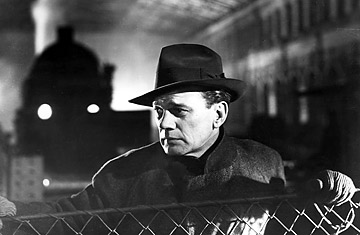
The Third Man, 1949
Cannes had an irregular early history. The inaugural festival was to begin on Sept. 1, 1939 — the day Germany invaded Poland. Things didn't truly get started until 1946, when the jury awarded the top prize to 11 of the 13 films in competition. (Alfred Hitchcock's Notorious was one of the two losers.) The festival awarded no prizes in 1947 and didn't take place the following year, so 1949 was the first year Cannes crowned an undisputed winner. The judges' choice was ideal: The Third Man. Graham Greene's murder mystery, set in postwar Vienna, was directed by an Englishman (Carol Reed), photographed by an Australian (Robert Krasker) and produced by a Hungarian (Alexander Korda), with a pan-European cast and two hallowed Americans, Orson Welles and Joseph Cotten. For an international festival on the rise, here was a truly international film that was both timely and classic.

The Wages of Fear, 1953
The first film after The Third Man to win the Palme d'Or on its own was Henri-Georges Clouzot's thriller about men in South America transporting nitrogylcerin in rickety trucks over rocky roads. Bitterly downbeat and remorsely suspenseful — any bump could blow the drivers to oblivion — this was an action film for postwar misanthropes. Despite or because of its cynicism, The Wages of Fear was a success in Europe and the Americas, and it propelled its leading man, Yves Montand, to international stardom.
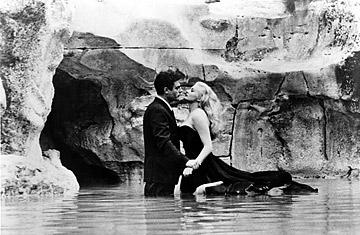
La Dolce Vita, 1960
The Via Veneto! Paparazzi! Marcello! All these exclamations, like the title itself, became international buzzwords thanks to Federico Fellini's three-hour panorama of Roman high and low life. The images of a Jesus statue carted by helicopter above the city, of Anita Ekberg walking through the Trevi Fountain in her evening gown, of Marcello Mastroianni (in his starmaking role) ending in moral exhaustion on a beach — they all made for unforgettable snapshots of a society in glamorous decay. After winning the Palme d'Or over Michelangelo Antonioni's L'Avventura, Ingmar Bergman's The Virgin Spring and Luis Buñuel's The Young One, the movie became an international hit. In real dollars, it is still the top foreign-language film shown in the U.S. Paparazzo, by the way, was the name of the street photographer
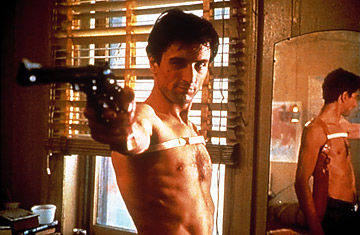
Taxi Driver, 1976
Cannes loves to certify auteurs and stars, and had the chance to do both by handing the Palme d'Or to Martin Scorsese. His study of urban violence featured Robert De Niro as deranged cabbie Travis Bickle, a sort of Ghost of New York Present patrolling the steamy, sewery nighttime streets and giving rides to the city's human refuse. That year's jury president, Tennessee Williams, must have responded to a vision of New York as sordid and poetic as those the playwright had created of the modern South.
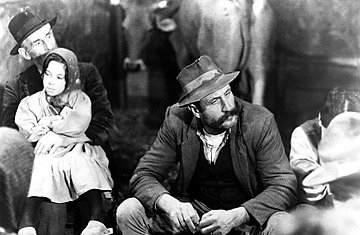
Tree of Wooden Clogs, 1978
Two years in a row, the Palme d'Or went to Italian films: the Taviani brothers' Padre Padrone in 1977 and this splendid rural epic from Ermanno Olmi. Like La Dolce Vita, this was a three-hour fresco, but hopeful, not skeptical. A village of farmers, under the boot of their master, sacrifice to send a bright child to school. That child might have been Olmi, who's been making films since 1953 without losing his love of the land and the peasants who till it.
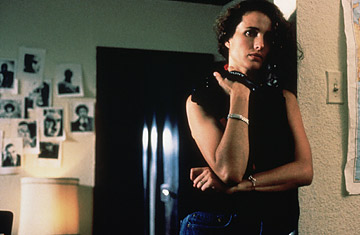
Sex, lies, and videotape, 1989
This year the two top contenders were prime examples of the burgeoning American independent-film phenomenon: Spike Lee's Do the Right Thing, a portrait of a multiracial American neighborhood on the verge of exploding, and Steven Soderbergh's romantic comedy about sexual dysfunction and deception. Soderbergh won the top prize and Lee got nothing, stoking a rancorous, racially tinged debate. Both films did well when they were released in the States that summer, and both sparked mini-genres — the angry black drama and the subtly winning indie slice of middle-class mores. They announced the arrival of two hard-working, hard-to-pigeonhole auteurs.
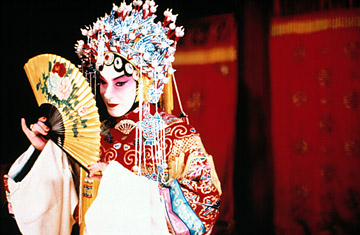
Farewell My Concubine, 1993
Cannes was slow to notice the rise of world-class films from China and Hong Kong; Chen Kaige's The Yellow Earth and Zhang Yimou's Red Sorghum got recognized in Locarno and Berlin before their directors ever got invited to Cannes. But the awarding of the Palme d'Or to Chen's Farewell My Concubine (a prize it shared with Jane Campion's The Piano) made headlines throughout East Asia. The 50-year story of two opera stars — stalwart Zhang Fengyi and the charismatic Leslie Cheung — was frowned on by Chinese censors for its scenes of government-forced betrayals during the Cultural Revolution. As a youth during that troubled time, Chen had been obliged to denounce his father, also a filmmaker, as a reactionary running dog. The night he won the Palme, Chen called his father to share the news, and the prize, with him.
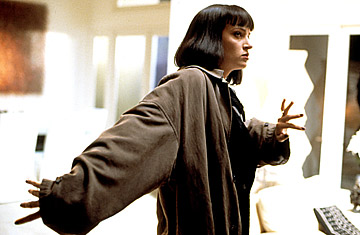
Pulp Fiction, 1994
The smart money this year was on Krzysztof Kieslowski's Red. But the jury, headed by Clint Eastwood, went for Quentin Tarantino's profane, madly inventive, blood-spattered melodrama that revived the career of John Travolta, turned Samuel L. Jackson into an A-list star and set the action-movie tone for the rest of the decade. Tarantino is back this year with another multistar epic, the war film Inglourious Basterds — his first competing film at Cannes since the one that made him famous.
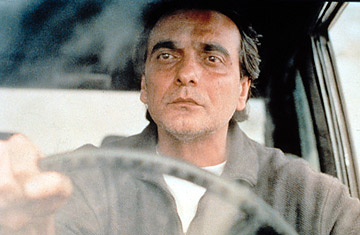
A Taste of Cherry, 1997
As a filmmaker from Iran, Abbas Kiarostami was once denied a visitor's permit to the U.S. But American critics had long praised his films (Life and Nothing More, Through the Olive Trees) and those of his countrymen, who had made Iran the leading new national cinema of the '90s. A Taste of Cherry, which tied with Shohei Imamura's The Eel for the Palme d'Or, is a darkly comic tale about a man who is contemplating suicide and has to audition assistants for the job. For the top prize it beat out films by esteemed directors Marco Bellocchio, Michael Haneke and Ang Lee — all of them back in the competition this year.
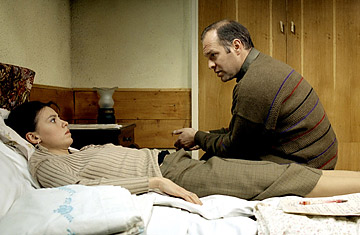
4 Months, 3 Weeks and 2 Days, 2007
Buzz is a little different at Cannes. Instead of stars and genres, people have code phrases for hot films. This one was "the Romanian abortion movie": Christian Mungiu's tart fable of his country in the last dark days of the Ceauşescu regime. A college girl needs an (illegal) abortion, and her friend hooks her up with a sinister gent named Mr. Bebe. A minimalist thriller, it delivers both as an exercise in suspense and the herald for another vibrant national cinema. That's Cannes: the place where a nobody director can, within two days, be on everyone's lips.
